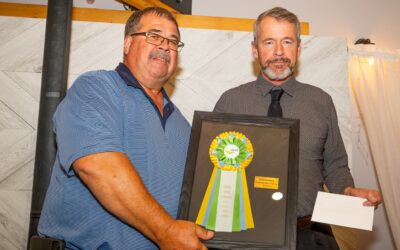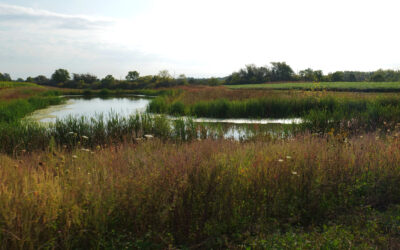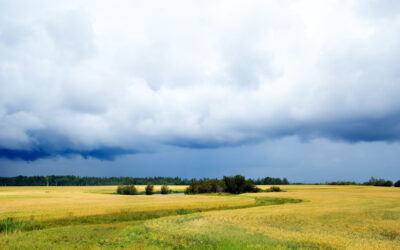Ian and Serena Donovan are improving productivity and biodiversity through their work with ALUS
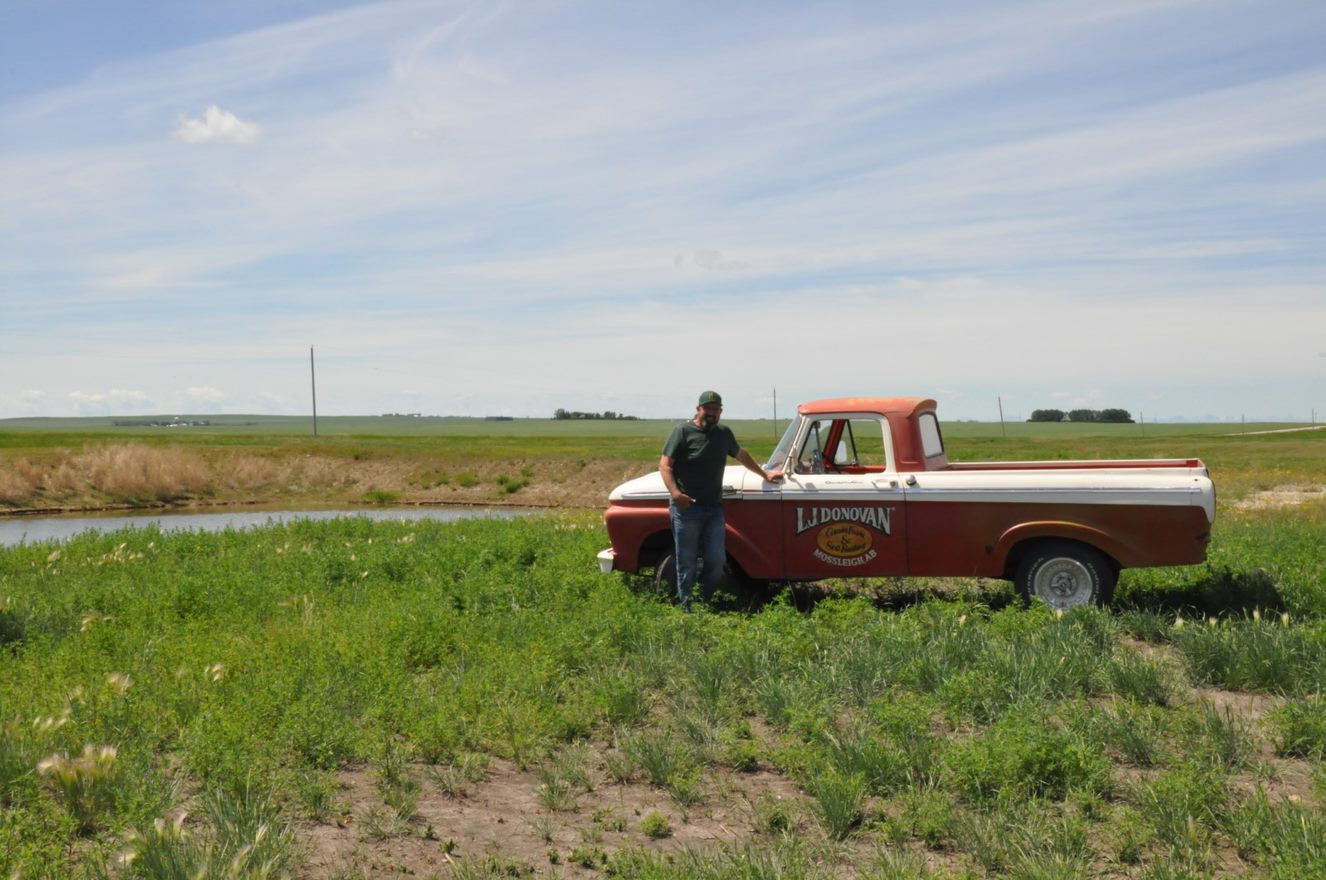
Ian Donovan, from ALUS Vulcan, Alberta.
In 2019, Ian and Serena enrolled 12 acres of their fourth-generation, 3,000-acre mixed farm into the ALUS Vulcan program.
Largely producing wheat, barley, canola and peas, the Donovan’s were challenged by a particularly uncooperative corner of their land. One of their fields sits in a low-lying area that frequently flooded, making it unmanageable based on their business model.
“We had a corner of a field that is a low-lying area that has historically been too wet to access the land to seed with our large equipment,” said Ian.
By partnering with ALUS Vulcan, the Donovans were able to recover this marginal part of their land and protect a naturally-occurring wetland by planting a permanent grass cover.
The benefits of the partnership are twofold for the Donovans: they improve the overall productivity of their land by removing problematic areas from production and they create habitat to support the wildlife and improve the environment.
The grass cover has helped to improve soil quality on the Donovan’s land by reducing the soil salinity, as the grass helps to capture and store nutrients. So, by fixing a portion of their land that was flooding, they also have improved the health of the land around it that remains in production.
And as the regeneration process continues on their land through the grass cover and protected wetland, the land’s ability to retain water is also improving.
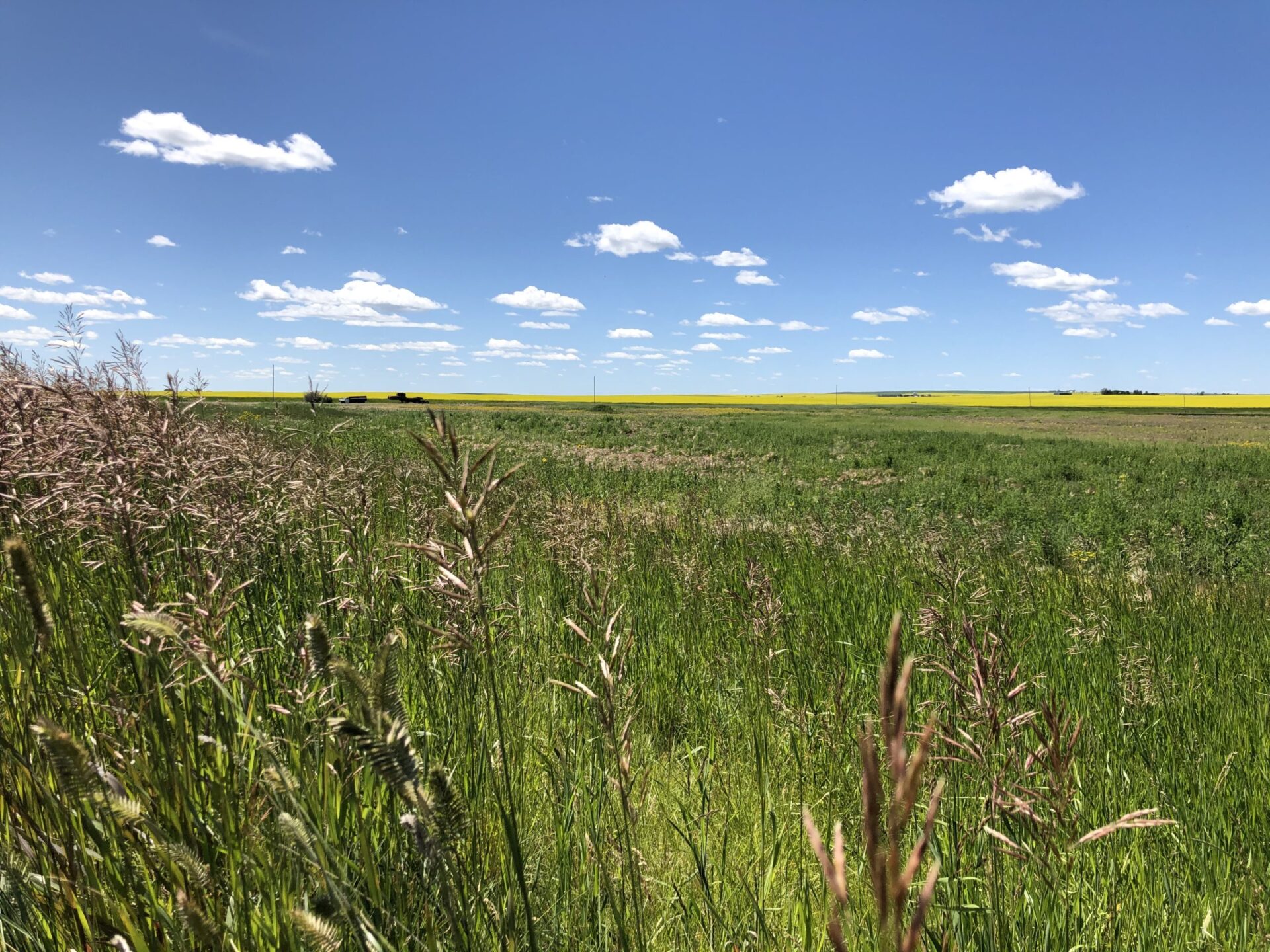
The Donovan Farm, ALUS Vulcan, Alberta.
The benefits from even this relatively small 12-acre project with ALUS are noticeable to the Donovans. They described seeing increased biodiversity, with the flourishing of many species of plants and animals they hadn’t seen before.
“By seeding back into grass we provide habitat for wildlife as well as rejuvenating the production of the land again.”
In part, this is because reduced agricultural runoff into the wetlandؙ — captured by the permanent grass cover — means the water in the wetland is cleaner. Wildlife benefit from the cleaner water. Healthy wetlands are vital to supporting a rich food web,sustaining many species and boosting biodiversity.
For the Donovans, the idea of giving back extends beyond the environment to the larger community. Both Ian and Serena have served as Vulcan County councillors and Ian is a former reeve as well as a former Little Bow MLA.
ALUS is proud to count Ian and Serena Donovan among its Trailblazers in Alberta.
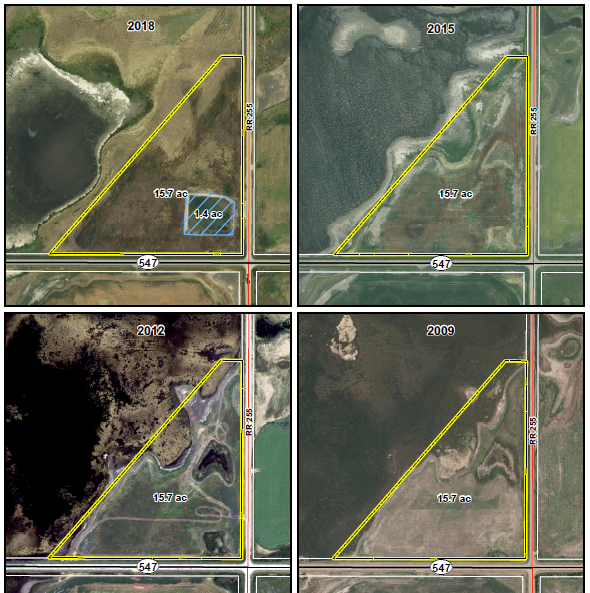
A comparison over the years of the Donovan project.

